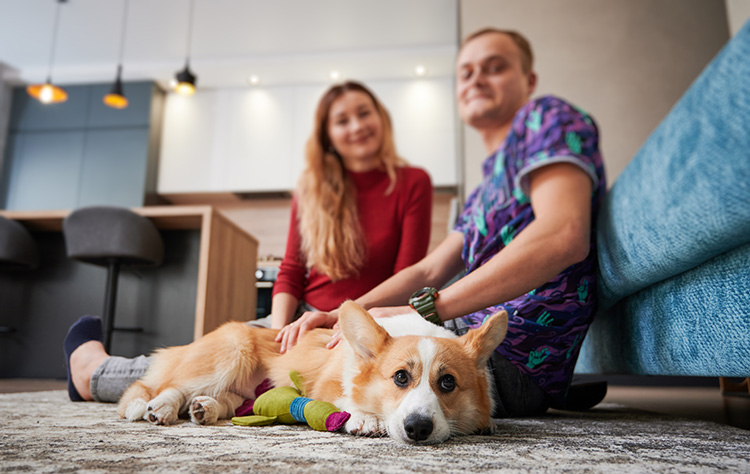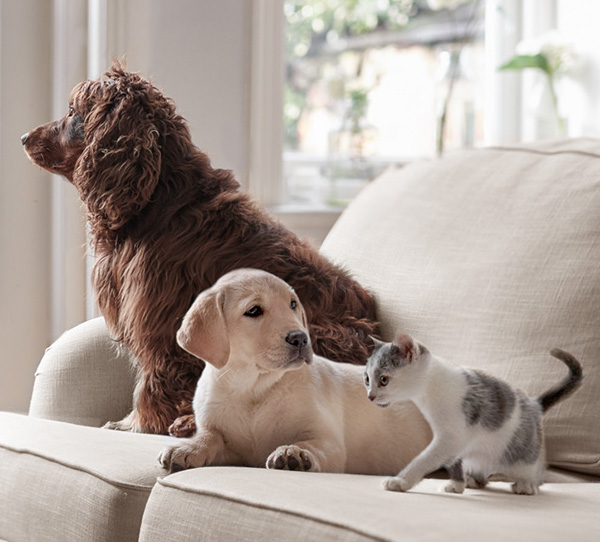
Getting a new pet is exciting, but there are many factors you need to consider first. Read on for our advice.
Time
A new puppy or kitten can be as demanding as a human infant, so it’s essential that you know you’re able to offer it your full attention. Young dogs and cats easily get bored and can destroy property if left alone for long hours, so consider that if you work away a lot and there’s no one at home to care for your pet. Even older animals can cause damage due to separation anxiety and loneliness, so keep that in mind too – nobody wants to arrive home after a long shift to find that their shoes have been mauled or their couch has been torn to shreds.
However, this doesn’t mean that an older or less-high maintenance animal will need none of your time. While it’s certainly true that an elderly cat or a guinea pig in a cage is less demanding of your attention than a 10-week-old kitten, you still need to make sure you’re able to offer your pet the love and care it deserves. Smaller animals, such as rabbits and ferrets, should not be locked up in cages all day long, so it’s essential that there’s someone home to interact with them at least once during the day.
Remember, even the most low-maintenance pet will need to be fed regularly, so if there’s a chance that you’ll not be able to keep up with your animal’s feeding routine, then you should reconsider getting a pet in the first place.
Finances
It makes sense to set out a budget before getting a pet. Not only will there be the initial costs – such as acquiring the pet itself, as well as any relevant equipment like enclosures, leads, litter trays, toys and others – you should consider how much your animal will cost per month. Monthly costs will inevitably include food but, depending on the animal, these could also be things such as litter, poo bags, straw bedding, annual vaccinations among others.
Unfortunately, many owners are not prepared for when their animal unexpectedly needs veterinary care. Vet bills can be alarmingly expensive and so it’s vital that you’re able to cover them. That’s why it’s always advisable that you have decent pet insurance, preferably from a flexible pet insurer such as Petsure for example. Just like people, pets can – and do – suddenly fall ill or end up in accidents. Just some examples include outdoor cats sustaining serious injuries from getting into fights, and dogs requiring emergency surgery after eating something they’re not supposed to. Animals also commonly suffer from a range of ailments in old age – for instance dogs and cats are both prone to arthritis when they get older. You want to ensure your beloved animal companion has the happiest and healthiest life possible, so do make sure you’re protected.
Featured – ASDA Money Pet Insurance
Offer: Get 12 months of Pet Insurance for the price of 11!
code: 12FOR11
Expiry: Ongoing
Terms: https://money.asda.com/media/asda-pets-12for11-tandcs.pdf
Breed
While you’ll likely know what type of pet you’re thinking of getting, it’s also important to consider the breed. Different breeds not only have different temperaments, they also have their own distinct needs. It’s therefore crucial that you go for a breed that matches your personality and your living situation. For instance, greyhounds are notoriously laidback and gentle, therefore they make ideal pets for less experienced dog owners; whereas Akitas require extensive daily exercise and can be challenging. Likewise, cats also differ widely in temperaments. Siamese and Bengals are demanding and need a lot of mental stimulation; whilst Persians and ragdolls are often happy to be lap cats.
Conclusion
If you’re thinking of getting a pet, it’s essential to consider how much time and attention you can offer, as well as whether or not the breed matches your personality and living situation. It’s also important to consider your finances and make sure you’re covered for when your pet needs veterinary treatment.
related store
TBD


Leave a Reply